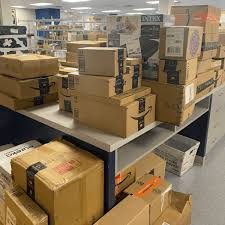Buy Closeout Inventory: Factors To Consider When Buying Closeout Inventory
Are you an entrepreneur looking to expand your business or a savvy shopper hunting for great deals? Buying closeout inventory can be a lucrative venture, offering opportunities to find high-quality products at unbeatable prices. In this comprehensive guide, we'll delve into everything you need to know about buying closeout inventory, from understanding what closeout inventory is to tips for finding the best deals. Whether you're a seasoned business owner or a newcomer to the world of entrepreneurship, this guide will equip you with the knowledge and strategies to succeed in buying closeout inventory.
What is the Closeout Inventory?
Closeout inventory refers to merchandise that retailers are looking to sell off quickly, often at significantly reduced prices. This can occur for various reasons, such as overstock, seasonal clearance, or discontinuation of products. Closeout inventory typically includes a wide range of items, from clothing and electronics to home goods and accessories.
Benefits of Buying Closeout Inventory
Buying closeout inventory offers several benefits for both businesses and consumers:
Cost Savings: Closeout inventory is usually sold at discounted prices, allowing buyers to save money on their purchases.
Variety: Closeout inventory often includes a diverse range of products, providing buyers with ample choices.
Profit Potential: Businesses can purchase closeout inventory at low prices and resell them at a higher profit margin, increasing their revenue.
Factors to Consider When Buying Closeout Inventory
Before diving into the world of buying closeout inventory, it's essential to consider several factors to ensure a successful purchase.
Quality of Inventory
While closeout inventory may be available at discounted prices, it's crucial to assess the quality of the products before making a purchase. Inspect the items thoroughly to ensure they meet your standards and are in good condition.
Market Demand
Evaluate the demand for the products you're considering buying. Conduct market research to determine whether there is a sufficient demand for the items among your target audience.
Pricing and Profit Margin
Calculate the pricing and profit margin for each item to determine whether it aligns with your business goals. Consider factors such as the cost of goods, selling price, and potential profit margin.
Storage and Logistics
Consider the storage and logistics involved in handling closeout inventory. Ensure you have adequate storage space and transportation facilities to accommodate the products.
Tips for Finding the Best Deals on Closeout Inventory
Finding the best deals on closeout inventory requires a strategic approach and careful consideration. Here are some tips to help you score great deals:
1. Network with Suppliers
Build relationships with suppliers and wholesalers who specialize in closeout inventory. They can provide valuable insights and offer exclusive deals.
2. Attend Trade Shows and Expos
Participate in trade shows and expos dedicated to closeout merchandise. These events are excellent opportunities to connect with suppliers and discover new products.
3. Explore Online Marketplaces
Browse online marketplaces and platforms that specialize in selling closeout inventory. Websites such as Liquidation.com and B-Stock Solutions offer a wide selection of closeout merchandise at competitive prices.
4. Negotiate Prices
Don't be afraid to negotiate prices with suppliers and wholesalers. Many sellers are willing to negotiate, especially if you're purchasing in bulk.
5. Stay Updated on Trends
Keep abreast of industry trends and consumer preferences to identify lucrative opportunities in the closeout market. Being informed about market trends can help you make informed purchasing decisions.
6. Consider Seasonal Clearance
Take advantage of seasonal clearance sales to purchase closeout inventory at even lower prices. Retailers often offer significant discounts during seasonal transitions, making it an ideal time to stock up on inventory.
Conclusion
Buying closeout inventory presents a valuable opportunity for businesses and consumers alike to access high-quality products at discounted prices. By understanding the intricacies of the closeout market and implementing strategic purchasing strategies, you can capitalize on this opportunity to grow your business and achieve financial success.
Frequently Asked Questions
How can I determine the quality of closeout inventory?
Assess the quality of closeout inventory by inspecting the products for any defects or damages. Additionally, research the reputation of the supplier or wholesaler to ensure reliability.
What types of products are typically available as closeout inventory?
Closeout inventory can include a wide range of products, including apparel, electronics, home goods, toys, and more. The availability of products may vary depending on market demand and supplier inventory.
Is buying closeout inventory a viable business opportunity?
Yes, buying closeout inventory can be a lucrative business opportunity for entrepreneurs. By purchasing closeout merchandise at discounted prices and reselling them at a profit, businesses can generate revenue and maximize their profits.
Are there any risks associated with buying closeout inventory?
While buying closeout inventory offers numerous benefits, there are also risks to consider, such as fluctuating market demand, storage costs, and the potential for unsold inventory. It's essential to conduct thorough research and due diligence before making any purchasing decisions.
How can I maximize my profits when buying closeout inventory?
To maximize profits when buying closeout inventory, focus on sourcing high-quality products at competitive prices, targeting in-demand items, and implementing effective marketing and sales strategies to reach your target audience.
Where can I find reputable suppliers for closeout inventory?
You can find reputable suppliers for closeout inventory through various channels, including trade shows, online marketplaces, industry networks, and referrals from other businesses.




Comments
Post a Comment